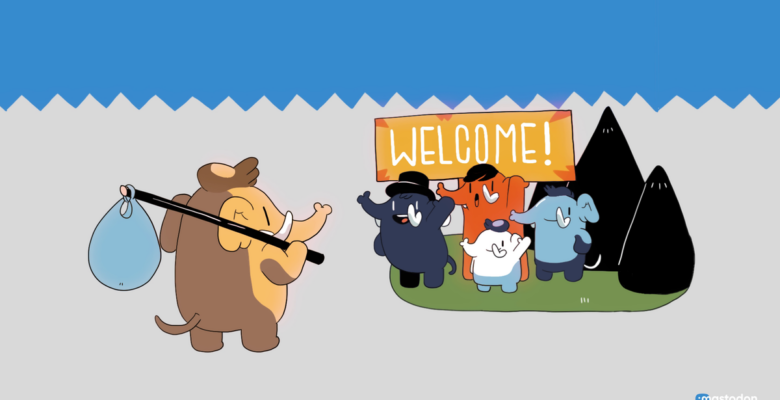Social media isn’t just about funny memes or catching up with friends—it’s become the go-to place for organizing movements, sharing ideas, and staying connected across the globe. But as concerns grow about centralized platforms, decentralized social media is emerging as a vital alternative. But what happens if the platforms we rely on are suddenly taken over, shut down, or silenced? What if that public square, where so much of our lives now unfold, becomes controlled by a handful of people or even a single entity?
This isn’t just a “what if.” It’s already happening. With more power concentrated in fewer hands, the risks of censorship, misuse, and even total collapse keep growing. That’s where platforms like Mastodon come in. Mastodon offers something different: a decentralized space where no one person, company, or government can pull the plug on everyone. Learn more about the Mastodon Fediverse Advantage here. Could this be the kind of lifeline we’ll need as the digital world continues to shift? Let’s break it down.
Centralized vs. Decentralized Social Media: Why It Matters to You
Big platforms like Facebook and Twitter are centralized, meaning one company holds the keys to the entire system. They make the rules, control the data, and decide what stays or goes. For most of us, this means less control over our online experiences and a higher risk of censorship or data being misused. If something goes wrong—like a hack, a bad policy decision, or a buyout—it affects millions of people instantly.
Decentralized platforms, like Mastodon, flip this model on its head. Instead of one company calling the shots, power is shared across many smaller, independent communities. You get to choose where you belong, and if something isn’t working, you can move to another space without losing your connections. It’s like being able to pick a neighborhood that feels right for you while still being part of a bigger world.
This setup isn’t just about freedom—it’s about resilience. Decentralization avoids the single points of failure that make centralized platforms vulnerable. It’s a way to put control back in the hands of everyday users and build a digital space that feels fairer, safer, and more future-proof.
Mastodon in the Spotlight: What Makes It Different
Mastodon is like a neighborhood of communities, each with its own vibe and rules, instead of one giant city controlled by a single authority. No one owns the whole thing, and that’s the point. Each community—or server—operates independently but still connects with others. You get to choose where you belong, based on what fits your values and interests, instead of being forced to follow one-size-fits-all rules from a corporate headquarters.
Contrast this with BlueSky, which, despite its open-source framework, retains centralized elements like a single point of governance over core aspects of the platform. This means that while it might offer some flexibility, ultimate control over policies and operations still rests with a central entity. For those seeking a truly resilient and autonomous platform, Mastodon remains a standout option.
Think of it this way: on a big centralized platform—or even a semi-centralized one like BlueSky—one policy change can affect millions overnight, whether it’s banning certain content or reshaping how things work without your input. On Mastodon, that’s almost impossible. If one community gets too restrictive or doesn’t meet your needs, you can easily move to another without losing your friends or followers. It’s like switching coffee shops but still seeing the same people you’ve built connections with.
This decentralized approach isn’t just about avoiding censorship or top-down control; it’s about putting choice and control back in your hands. You decide what kind of space you want to be part of—and that’s what makes it so different.
The Practical Challenges of Mastodon—and Why It’s Worth It
Mastodon’s decentralized nature is its strength, but it comes with challenges. Unlike centralized platforms, where everything is streamlined under one roof, Mastodon is a network of independently run communities. This can make getting started feel fragmented or confusing—like stepping into a town with dozens of neighborhoods and figuring out where you belong. User interfaces may also vary slightly between servers, and moderation policies can differ, which might feel inconsistent at first.
However, these challenges are a small price to pay for the benefits of decentralization. The ability to choose a community that aligns with your values, the resilience against mass outages or censorship, and the freedom from a single point of control make Mastodon a powerful alternative. Plus, ongoing improvements to user experience and moderation tools are making it even easier to navigate.
How to Prepare for a Changing Digital Landscape
Getting started with Mastodon is easier than it might seem. Begin by exploring Mastodon’s directory of servers and pick one that fits your interests or values (https://joinmastodon.org/). Don’t overthink it—you can always migrate to another server later without losing your connections. Once you’re set up, take time to familiarize yourself with the culture and features of your community.
But preparation isn’t just about signing up—it’s about shifting how we think about digital spaces. Supporting decentralized platforms means embracing a future where users have more control and autonomy. By exploring alternatives like Mastodon now, you’re not just safeguarding your online experience; you’re contributing to a more resilient, fair, and open internet for everyone.
